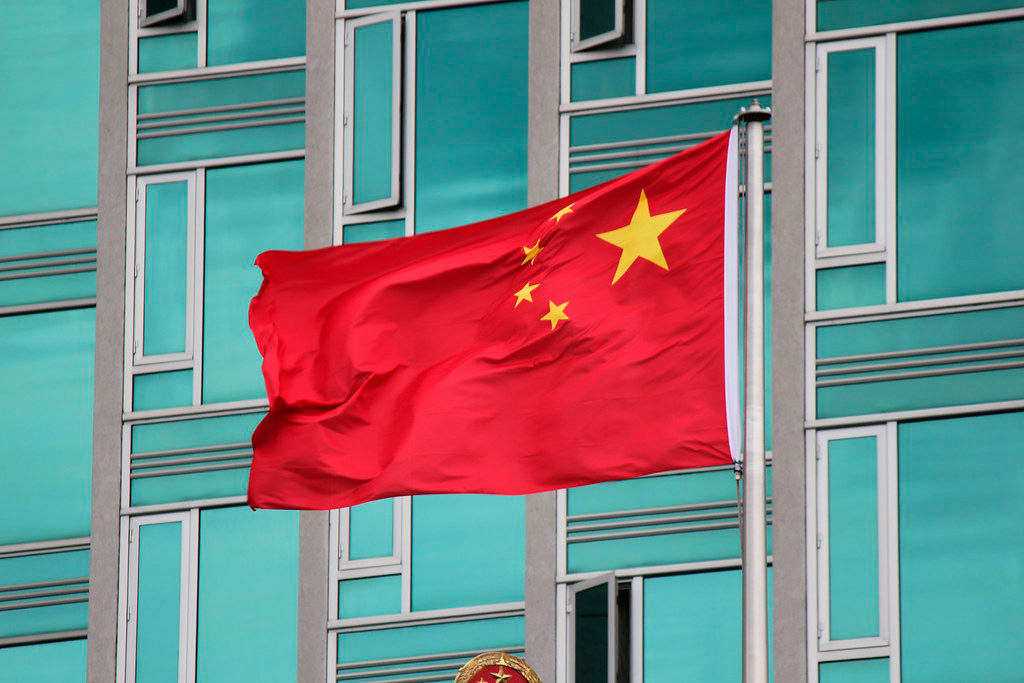The global opioid crisis, fuelled largely by the proliferation of synthetic drugs like fentanyl, has emerged as one of the most pressing public health challenges of our time. While addiction and overdose statistics paint a grim picture, the underlying mechanics of this epidemic reveal an even more troubling reality: the significant role played by China in facilitating the trade of these lethal substances.
China’s role in the global drug trade, particularly in the production and distribution of synthetic drugs like fentanyl, has come under increasing scrutiny due to several reasons. As the world confronts an opioid addiction crisis of staggering proportions, mounting evidence has pointed towards Chinese state and non-state actors in facilitating the illicit trade. Whether through deliberate negligence or covert complicity, China’s role in enabling the flow of synthetic drugs and their precursors has increased in proportions in the past few years. This alarming trend has ignited fierce debates over Beijing’s accountability, raising urgent questions about its commitment to global anti-drug efforts. The crisis has also brought forward the pressing need for robust international cooperation to counteract this menace and hold those enabling it to account, regardless of their geopolitical clout.
China’s Position in the Global Drug Trade
China is a dominant player in the production of synthetic drugs and precursor chemicals, substances used to manufacture opioids like fentanyl and methamphetamine. The country’s well-established pharmaceutical and chemical industries, combined with loose regulatory frameworks, make it a hub for both legal and illegal chemical production.
Fentanyl, a synthetic opioid that is 50-100 times more potent than morphine, has become a centrepiece in its drug trade. While Chinese laws restrict the domestic production of fentanyl itself, precursor chemicals used to synthesize the drug are often exported without adequate oversight. These chemicals find their way to Mexican drug cartels, which use them to manufacture fentanyl, smuggling the final product into markets like the United States.
Although fentanyl itself may not always be manufactured directly within China, their precursors, critical chemicals used to synthesize the drug, are overwhelmingly exported from Chinese factories. These chemicals often find their way into the hands of cartels and drug traffickers, who then produce and distribute the finished product on a global scale.
Despite international pressure and regulatory changes aimed at curbing the export of these substances, traffickers continue to exploit loopholes, weak enforcement, and corruption within the Chinese Communist Party’s (CCP) system. Critics argue that this lack of stringent control reflects not just an inability but, at times, an unwillingness on Beijing’s part to address the problem comprehensively.
What further complicates the issue is the dual narrative surrounding China’s role in the trade. On one hand, the Chinese government asserts its commitment to fighting drug trafficking, emphasizing its domestic crackdown on synthetic drugs. Beijing frequently highlights its efforts to regulate chemical exports, implement bans on specific precursors, and cooperate with international anti-drug agencies. On the other hand, the persistence of fentanyl precursors in global markets raises questions about the sincerity and effectiveness of these measures. Sceptics have also argued that China’s actions often amount to little more than symbolic gestures, designed to deflect criticism while maintaining the profitability of its chemical export industry.
The CCP’s Complicity: Active or Passive?
This duplicity has significant geopolitical ramifications. The United States, which has borne the brunt of the fentanyl crisis, has repeatedly called on China to tighten its regulations and enhance enforcement. Diplomatic exchanges have often turned into blame games, with Beijing accusing Washington of failing to address its domestic demand for opioids and the U.S. countering with evidence of China’s complicity. The resulting tension not only hinders effective collaboration but also risks politicizing a humanitarian crisis that demands a unified response.
Beyond the U.S.-China dynamic, the broader implications of China’s role in the opioid trade cannot be ignored. The availability of cheap synthetic drugs and other subsidiary products has made addiction a growing concern in both developing and developed countries, where resources for treatment and prevention are scarce. By enabling the flow of these substances into vulnerable regions, China inadvertently exacerbates global health inequalities and undermines the stability of societies already grappling with poverty, corruption, and weak governance.
What makes China’s role particularly troubling is the potential complicity of state actors. While there is no direct evidence linking the CCP to the drug trade, allegations of tacit approval and negligence persist. The sheer scale of the chemical export industry, combined with its importance to China’s economy, suggests that turning a blind eye to certain activities may be a calculated decision. Furthermore, the lack of transparent accountability mechanisms within China makes it difficult to ascertain the extent of government involvement or indifference.
The opioid epidemic presents an urgent call for action that transcends national boundaries. Addressing the role of China in this crisis requires a multifaceted approach that combines diplomatic pressure, enhanced regulatory frameworks, and technological solutions to track and intercept precursor chemicals.
In the end, China’s role in the global drug trade is a litmus test of its willingness to engage as a responsible global actor. The question is not merely about the regulation of chemical exports or the enforcement of anti-trafficking laws, but it is about Beijing’s broader approach to its responsibilities in a globalized world. The answer will shape not only the trajectory of the opioid crisis but also the contours of China’s role in an interconnected world.
Author
Ratish Mehta,
Reserch Associate at Organisation for Research on China and Asia (ORCA)

